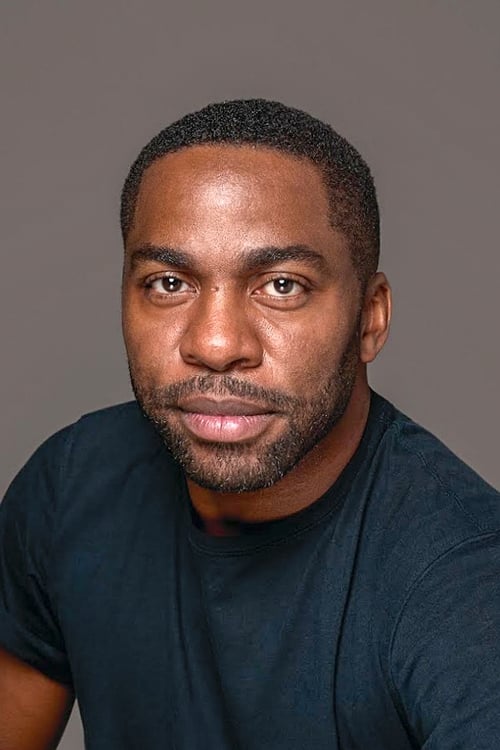Lázaro Ramos
出生 : 1978-11-01, Salvador, Bahia, Brazil
略歴
Luís Lázaro Sacramento Ramos (born November 1, 1978) is a Brazilian actor, presenter, director, writer and voice actor. He started his acting career with the Flock of Olodum Theater group, in Salvador, and is best known for his portrayal of João Francisco dos Santos in the 2002 film Madame Satã (film). Lázaro is married to Brazilian actress Taís Araújo. In 2007, he was nominated for the 35th International Emmy Awards for Best Actor for his role in Cobras & Lagartos.

Lázaro Ramos
Sisters Mirian and Mirelly were born in the interior of Goiás, but live in different cities. When their mother disappears, the two put aside their differences and come together to look for her, on a journey that could change their lives.

Director

Self - Host
Ingrid Guimarães and Lázaro Ramos hit the ground running on Prime Video. The two Brazilian stars are joined by Juliette, Tia Má, Luana Martau, Lindsay Paulino, Pablo Sanábio and other special guests to talk about CHANGE with a lot of humor and irony. In a sequence of comic sketches, they reflect on struggles and lessons that brought us all to 2023.

Tom
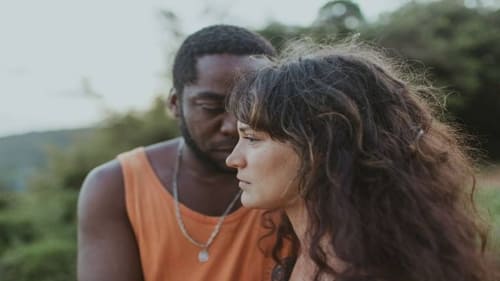
Josué
A police officer tries to find out who is to blame for a crime committed against a candidate for mayor of a small town. He hears versions of a hired killer, the victim's fiancée, and the candidate himself.

Elergun
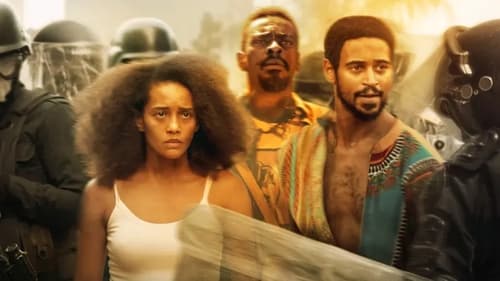
Writer
In a dystopian future, the Brazilian government decrees a measure that forces black citizens to migrate to Africa in an attempt to return to their origins. Seeing themselves in the center of terror, two cousins take refuge in an apartment, where they debate social and racial issues, and share the same yearning for the change of country.

Director
In a dystopian future, the Brazilian government decrees a measure that forces black citizens to migrate to Africa in an attempt to return to their origins. Seeing themselves in the center of terror, two cousins take refuge in an apartment, where they debate social and racial issues, and share the same yearning for the change of country.

A group of actors and actresses rehearse play virtually and look for solutions to get around the fact that they cannot meet. Confined at home, they use their own family members on stage. The piece chosen is ÁLBUM DE FAMÍLIA, by Nelson Rodrigues, an attempt to debate the idea of a traditional Brazilian family.

Director
The special features 22 real testimonials from people like Mandela, Martin Luther King and Marielle Franco, who fought racism and freedom in favor of justice.
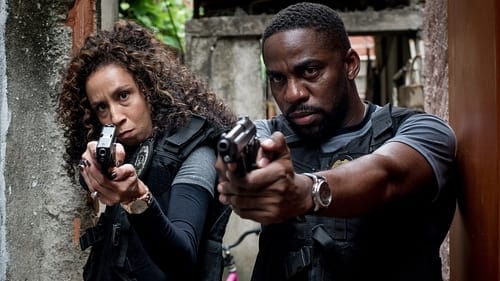
Espinoza
When executive Ricardo is found shot dead in the seat of his car without suspicion, Inspector Espinosa and police officer Daia are in charge of the case and soon begin to investigate the people closest to the victim. But when everyone involved in the case mysteriously disappears, the situation takes on unexpected proportions.

Motorista da Funerária
When Maurício becomes a student at a top medical school, he becomes obsessed with a mystery linked to the dead bodies used for dissection.

What does Brazilian cinema tell us? What does Brazilian cinema tell us about black actresses and actors? ‘Pressed, Ripped Apart’ makes use of archival sources to retrieve the trajectory of black actresses and actors who, between absences and delimited presences, between the fallacy of a racial democracy – based on the harmony among Brazil’s diverse identities – and erasure of identity, strain the history of Brazilian audiovisual and above all, our own history.
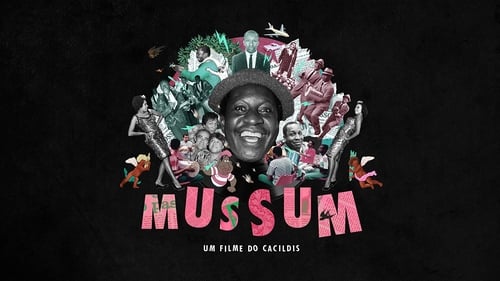
Narrador
The trajectory of musician and comedian Mussum as vocalist of the group "Os Originais do Samba" and later in cinema and TV as a member of "Os Trapalhões", a group that revolutionized the way of making humor on Brazilian television.
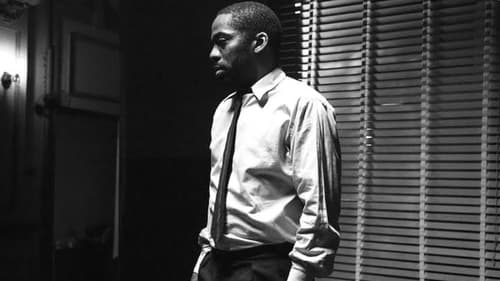
Arandir
When witnessing a hit, Arandir, a newly married banker, tries to succor the victim, but the man, almost dead, has only time to make one last request: a kiss. Arandir kisses the man, but his act is spotted by his father-in-law Aprígio and photographed by Amado Ribeiro, a tabloid reporter.
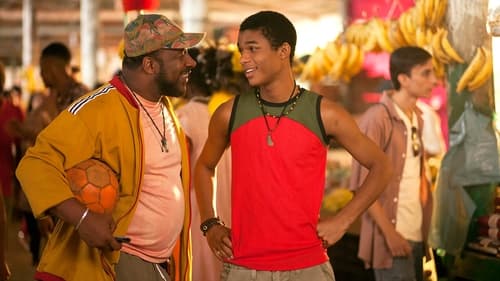
Jerry
Paulo Ventania is a black Brazilian man, always doing his best to bring some happiness in his life, and by happiness he means money. When he's at a dead end, he discovers the opportunity to become a football manager by leading some boy from the neighborhood to becoming the new Neymar of international soccer. Going through the suburbs of Rio, he finds Glanderson, a young boy with an enormous talent for soccer despite missing two toes. With good humor, high hopes, and a lot of mistakes, the quixotic duo tries their best to make their dream come true.

Director
The 28-year history of the Olodum Theater Band, Latin America's longest-running black theater company. Created in Salvador in 1990, in partnership with the Olodum Cultural Group, the company was responsible for launching names such as Lázaro Ramos and Érico Brás. Gathering archive images and interviews with Bando members, collaborators and other guests, the group's trajectory is built.
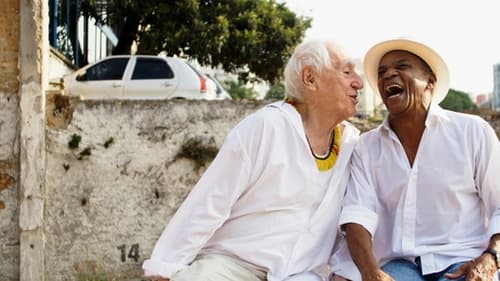
Self
This documentary investigates the aesthetic, political and existential trajectory of emblematic Black Brazilian actor Antônio Pitanga. He career spans over five decades, and he has worked with iconic Brazilian filmmakers Glauber Rocha, Cacá Diegues and Walter Lima Jr. He was a prominent figurehead and outspoken activist during the Brazilian dictatorship, a period of unrest in Brazilian cinema. Pitanga deep dives into the world of Antônio and the history of Brazil. The documentary was directed by his daughter Camila Pitanga, one of widely recognised faces in Brazilian television and cinema right now. The film is also a poem, and a tender ode to fatherhood.

Nenê
São Paulo, 2007. Santana works as a dogcatcher, picking up stray animals. He is a friendly guy, averse to trouble, who has always kept violence away from the doorsteps of his home. One day, he catches a very big dog in a school. Some days later, comes the animal's owner: Babyface, a sociopath ex-cop. The man is furious, considering his dog to be "kidnapped", and demands immediate restitution of his pet. But the dog is not coming back: according to the law, the animal was put to sleep. In a misunderstanding, Babyface argue with Santana, blaming him for his pet's death. From this moment on, Santana's life will be completely changed.
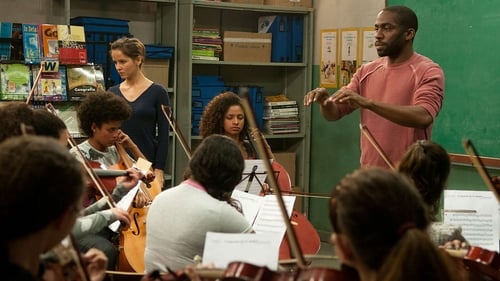
Laerte
Laerte, a talented violinist who after failing to be admitted into the OSESP Orchestra is forced to give music classes to teenagers in a public school at Heliopolis. His path is full of difficulties, but the transforming power of music and the friendship arising between the teacher and the students open the door into a new world.

Based on 'Death of a Man in the Balkans (2012)', an original feature film of Miroslav Momcilovic, 'Sorria, Você Está Sendo Filmado' ('Smile, You're Being Filmed') tells the story of a suicide, in only one shot of 80 minutes, from the perspective of a web cam which only the suicidal knew was on, giving the viewer the feeling of watching everything from his window. "From the screenplay to the shooting, we are doing a kind of reality cinema," sets this movie director Daniel Filho.

A film about imagination, in which the protagonist goes on internal journeys around the world, overcoming fears and making new discoveries.

Vicente
A man, who creates pasts for a living, struggles to find his own past while a mysterious woman takes a dangerous step.

Associate Producer
Zézé Gamboa's sardonic historical drama follows a good-hearted, apolitical con man who, on the eve of Angolan independence in the mid-1970s, pulls off a massive swindle at the expense of the Portuguese colonial administration — and soon after finds himself hailed as a hero of the national liberation struggle.

Joãozinho
Zézé Gamboa's sardonic historical drama follows a good-hearted, apolitical con man who, on the eve of Angolan independence in the mid-1970s, pulls off a massive swindle at the expense of the Portuguese colonial administration — and soon after finds himself hailed as a hero of the national liberation struggle.
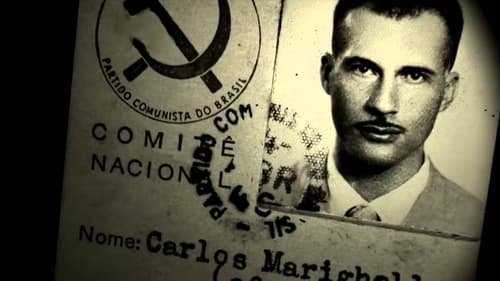
Narrator
This communist and parliamentarian leader was arrested and tortured, and became famous for having written the "Minimanual of the Urban Guerrilla". Greatest name of the left-wing militancy in Brazil in the 1960s, Carlos Marighella acted in the main political events of Brazil between the 1930s and 1969 and was considered enemy number one of the Brazilian military dictatorship. His life was a great act of resistance and courage.

Walter
Walter is an absent father and husband who works in a hospital without time for his family. His redemption happens when his wife sends him to the birthday cake for her daughter, but she does not know is that during the return trip home, the impossible will happen so that everything goes wrong.

Roque
During Carnival at the historic site of Pelourinho, we follow the lives of tenants in a run-down rental house who try to survive using creativity, irony, humor and music. This is an adaptation of the TV show, not the 2007 movie which inspired the TV show.

Cobrador
Adaptation and unification in a single story of several stories by the writer Rubem Fonseca, where the theme of violence in contemporary society is explored.

The short tells the story of a boy who, in his last recovery test at school, has the task of writing a text in 15 minutes. During the creative process, the boy embarks on a musical universe full of characters and myths from the 80's revived in four musical numbers packed with reinterpretations of Sérgio Mallandro's hits.
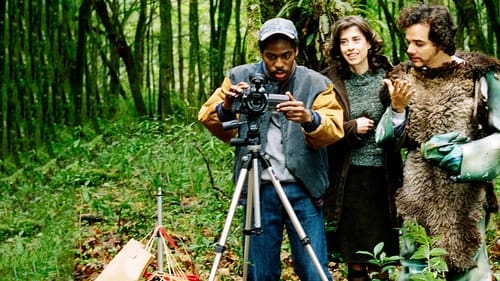
Zico
When they discover their town lacks funding for a sewage system, but does have a federal grant to make a movie, a group of villagers decide to make a sci-fi joint about a monster who lives in the building site of a septic tank.

Roque
During the Carnival in the historical site of Pelourinho, Salvador da Bahia, we follow the lives of the tenants of a falling-to-pieces tenement house who try to get by using creativity, irony, humor, and music.

Doido Cético
In Nordestina, a small town lost in the Brazilian badlands, young Karina dreams of becoming an actress and leaving to explore the world. Before losing his love, Dona Nazaré’s son, Antônio, takes the first step in a kamikaze crusade to bring the world to Karina. For that, Antônio leaves town and announces, in a TV show that he will set off on a sensational adventure: a trip into the future, starting from Nordestina’s square. A story where dreams contradict reality, geographical and political conditions threaten to block life, and love plays the part of the transforming element.

Formiga (Luiz dos Santos)

Edmilson
A journey into the psyche of Atanásio, a doorman in Copacabana, confused while attempting to understand his desires and aspirations.
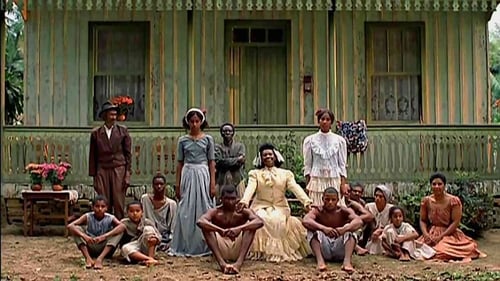
Dido
Free adaptation of Machado de Assis's short story "Pai Contra Mãe", having some of Nireu Cavalcanti's 18th Century chronicles as inspiration, the film traces parallels between life in during the slavery period and in modern Brazil.
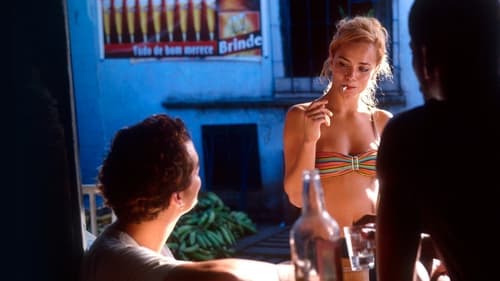
Deco
Best friends Deco and Naldinho co-own a cargo boat in Brazil's Salvador da Bahia. They give a ride to a sultry prostitute named Karinna, and soon both men fall prey to her considerable sexual charms, pushing the bounds of their friendship to the limit.

João de Camargo
Cafundó is a 35 mm color film which blends fact with fiction in the life of João de Camargo, a former black slave (1858-1942, Sorocaba, Brazil) who, in his old age, works miracles and devotes himself to assisting others in order to attain his freedom. João de Camargo represents the genesis of religious and cultural syncretism in Brazil.

Éder
Eder (Lázaro Ramos) is arrested after confessing the murder of a man. Duca (Darlan Cunha), a 15 years old boy who is Eder's nephew, wants to prove the innocence of his uncle, he's sure that his uncle confessed the crime to protect his girlfriend, Soraya (Deborah Secco), ex-wife of the deceased. Duca also wants to win the heart of Isa (Sophia Reis), a classmate who seems more interested in his best friend, Kid (Renan Gioelli). To be able to prove his theory, Duca gets help from Isa and Kid.

Joey
This beloved Brazilian parody of Shakespeare in Love tells the story of Miguel's relentless furiculite. For better or worse, it is his aim to conquer every single ass in the county, right up to the toughest of them all: the governor's.
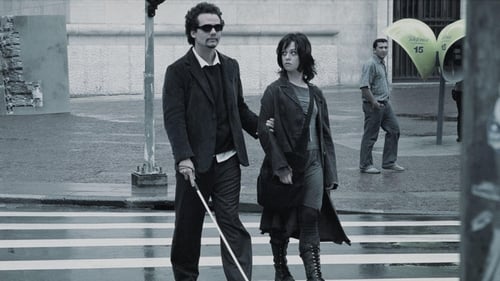
Pintor
Psychological thriller larded with manga-like animations about the young, poor comic strip illustrator Nina, living with her mean landlady. She sinks further and further into a violent fantasy world.

André
André, 19, lives in Porto Alegre, Brazil, and works as a photocopier operator. He likes to see his neighbor Sílvia with a pair of binoculars. She works selling clothes. Becoming attracted to her, he tries to get nearer, and goes to her shop to buy something, but finds out that he can't afford it. So he puts the photocopier to other uses, and begins to envisage fishy schemes to earn some money.

Ezequiel
When a doctor decides to carry out an AIDS prevention program inside Latin America’s largest prison: the Casa de Detenção de São Paulo - Carandiru, he discovers the victim of one of the darkest days in Brazilian History when the State of São Paulo’s Military Police, with the excuse for law enforcement, shot to death 111 people. Based on real facts and on the book written by Dráuzio Varella.

Marcão
Maiquél has lost a bet and dyed his hair blond. This seemingly innocuous event triggers a head-on collision with destiny in which he goes from nobody to hero to outlaw — all in 24 hours.

João Francisco dos Santos / Madame Satã
A story inspired by the life of one of the most remarkable figures in Brazilian popular culture, João Francisco dos Santos (1900-1976). In turn, bandit, transvestite, street fighter, brothel cook, convict and father to seven adopted children, dos Santos – better known as Madame Satã – was also a notorious gay performer who pushed social boundaries in a volatile time.

Catrevagem
A mother, with her three daughters, exacts revenge on her former fiancé for killing her husband and sons.

Max
Set to the intoxicating rhythms of Brazil, "Woman on Top" is a spicy, sexy comedy about the magic of food, love and music. Meet Isabella, a sultry enchantress born with the special gift of melting the palates and hearts of men everywhere. When she decides to break free from her rocky marriage and the stifling kitchen of her husband's restaurant in Brazil, she spirits off to San Francisco in pursuit of her dreams of a real culinary career.

Chico
A poor family, lives in a city near Salvador. The father is cleaner and, mother and daughter help making small services. Until they decide to try the luck in the big city and the father, Raimundo, get a job near Pelourinho, next to a dance academy. The daughter, Carla, in contacting music, discovers her true vocation and becomes a very successful dancer. But she does not let himself take away from fame and back to his origins, meets with poor children and teaches them to dance.

Menino
